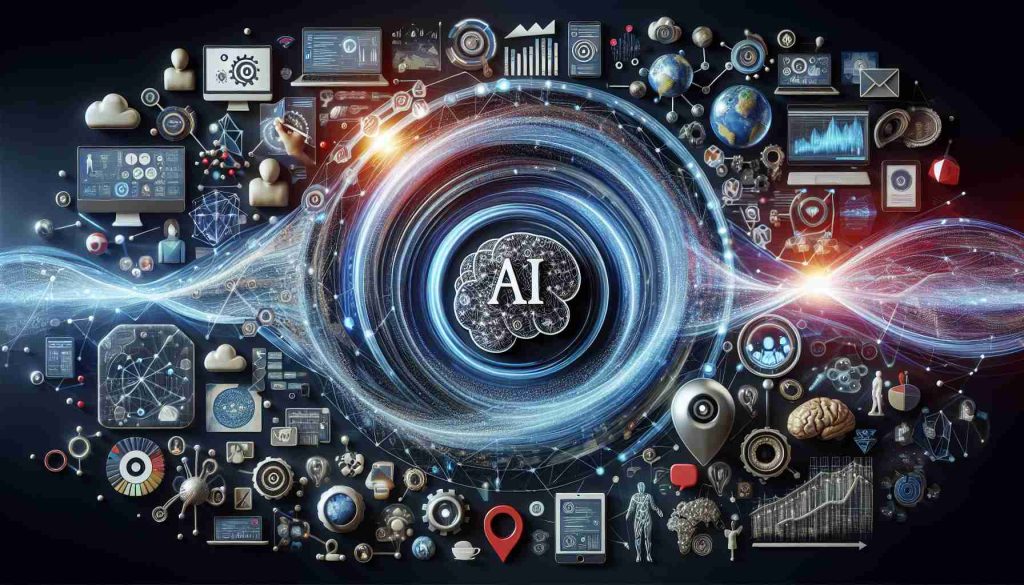
The marketing realm is undergoing a transformative phase with the incursion of AI technologies, which are redrawing the strategies for storytelling and brand communication. The advent of AI introduces a paradigm shift in the creation and dissemination of marketing materials, extending from the writing of text to the generation of synthetic media. AI has risen from a niche concept to a societal game-changer within half a decade, prompting marketers to harness its capabilities.
The exploration of AI’s potential and risks by experts with backgrounds in politics and geopolitics has underscored the dual-edged nature of the technology. Deep fakes, initially an Internet obscurity used malignantly, signaled the burgeoning capabilities of AI in creating realistic synthetic content. While AI is not sentient, it exhibits a level of processing and decision-making that can replicate and even surpass human action in specific tasks. This has major implications for marketing, where content creation and scaling can now be streamlined through AI-powered tools.
Employing foundational models and natural language processing, AI systems enable the construction of various content formats tailored to a brand’s communicative intent. Reflecting on the philosophical underpinnings of AI sheds light on the active role humans play in shaping this technology. Rather than viewing AI as an uncontrollable external power, it’s integral that we exercise our agency, ensuring the technology’s impact is both progressive and ethical.
In summary, AI’s integration into marketing denounces a static approach, demanding perpetual adaptation from marketers. As they engage with AI tools to forge narratives and express brand identity, the emphasis remains on human oversight to steer the technology towards beneficial and innovative applications.
Impact of AI on the Marketing Industry
The marketing industry has been experiencing profound changes as Artificial Intelligence (AI) redefines the landscape. AI’s capacity for data analysis, pattern recognition, and predictive analytics has translated into more efficient and personalized marketing strategies. The technology enables marketers to automate repetitive tasks, provide more targeted advertising, and create sophisticated customer engagement tools.
AI’s utility in big data management and analysis has become indispensable with the exponential growth of data volumes. This provides marketers with insights that lead to a better understanding of consumer behavior. Marketers can leverage AI to optimize campaigns and improve return on investment (ROI).
Market Forecasts and Growth
According to market research, the AI in the marketing sector is projected to grow exponentially. This surge is fueled by increasing digitalization, readily available big data, and the growing need for personalized marketing solutions. Businesses are investing more in AI-driven marketing tools to stay competitive and meet evolving consumer demands.
Challenges and Ethical Considerations
However, there are considerable issues and challenges associated with the increasing use of AI in marketing. The creation of deep fakes and the potential for spreading misinformation highlight the need for ethical guidelines and regulations. Marketers must be vigilant about AI applications to ensure authenticity in brand messaging and to protect consumer trust.
Additionally, there are concerns about privacy as AI systems often require extensive data to function optimally. Marketers are therefore tasked with balancing personalization and privacy, adhering to data protection regulations such as GDPR.
Conclusion
As AI continues to transform marketing, the industry is tasked with staying ahead of the curve, understanding the underlying technologies, and keeping the human element central in AI-driven strategies. Marketers must harness AI’s potential ethically and responsibly for the most effective and innovative outcomes.
For more information on the intersection of technology and marketing, visit the Forbes website for insights and trends.
And for the latest developments in AI technology and market forecasts, you can check out the research articles on the Gartner website.
[embedded content]

Michał Rogucki is a pioneering figure in the field of renewable energy, particularly known for his work on solar power innovations. His research and development efforts have significantly advanced solar panel efficiency and sustainability. Rogucki’s commitment to green energy solutions is also evident in his advocacy for integrating renewable sources into national power grids. His groundbreaking work not only contributes to the scientific community but also plays a crucial role in promoting environmental sustainability and energy independence. Rogucki’s influence extends beyond academia, impacting industry practices and public policy regarding renewable energy.
